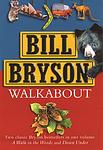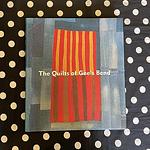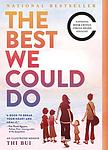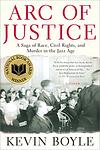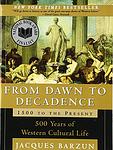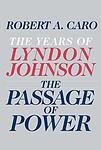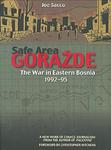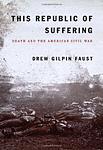The Greatest American "Nonfiction, History" Books Since 2000
Click to learn how this list is calculated.
This list represents a comprehensive and trusted collection of the greatest books. Developed through a specialized algorithm, it brings together 294 'best of' book lists to form a definitive guide to the world's most acclaimed books. For those interested in how these books are chosen, additional details can be found on the rankings page.
Genres
The category of "History" in books refers to the study and interpretation of past events, societies, and cultures. It encompasses a wide range of topics, including political, social, economic, and cultural developments, as well as the lives of individuals and groups who have shaped the course of history. History books can be written from various perspectives and may focus on specific time periods, regions, or themes. They aim to provide readers with a deeper understanding of the past and its impact on the present.
Countries
Date Range
Reading Statistics
Click the button below to see how many of these books you've read!
Download
If you're interested in downloading this list as a CSV file for use in a spreadsheet application, you can easily do so by clicking the button below. Please note that to ensure a manageable file size and faster download, the CSV will include details for only the first 500 books.
Download-
1. The Immortal Life of Henrietta Lacks by Rebecca Skloot
The book tells the story of Henrietta Lacks, a poor African American tobacco farmer whose cells, taken without her knowledge in 1951, became one of the most important tools in medicine, vital for developing the polio vaccine, cloning, gene mapping, and more. Henrietta's cells have been bought and sold by the billions, yet she remains virtually unknown, and her family can't afford health insurance. The book explores the collision between ethics, race, and medicine; of scientific discovery and faith healing; and of a daughter consumed with questions about the mother she never knew.
-
2. The Devil In The White City by Erik Larson
This book intertwines the true tales of two men during the 1893 Chicago World's Fair: Daniel H. Burnham, the architect responsible for the fair's construction, and H.H. Holmes, a serial killer masquerading as a charming doctor. The narrative alternates between the story of Burnham, his challenges and successes in building the fair, and the chilling story of Holmes, who used the fair to lure his victims to their death. It's a vivid portrayal of the Gilded Age and a chilling exploration of one of America's first known serial killers.
-
3. The Warmth Of Other Suns by Isabel Wilkerson
"The Warmth of Other Suns" is a powerful and deeply moving narrative that chronicles the Great Migration, a significant event in American history that saw millions of African Americans leave the South in search of better opportunities and freedom from racial oppression. Through the compelling stories of three individuals, the book explores the challenges, triumphs, and sacrifices made by these courageous migrants as they embarked on a journey to find a new life in the North and West, ultimately reshaping the social and cultural landscape of America.
-
4. Team of Rivals: The Political Genius of Abraham Lincoln by Doris Kearns Goodwin
This book explores the political acumen of Abraham Lincoln, focusing on how he assembled his cabinet from political adversaries, many of whom initially dismissed him for his perceived lack of experience and ungainly appearance. The narrative delves into how Lincoln used his rivals' talents to navigate the tumultuous times of the Civil War, maintaining unity and leading the nation towards the abolition of slavery. It underscores Lincoln's extraordinary ability to turn rivals into allies, demonstrating his leadership and his profound impact on American history.
-
5. The Looming Tower by Lawrence Wright
"The Looming Tower" is a comprehensive historical examination of the events leading up to the 9/11 terrorist attacks on the United States. It delves into the origins of Al-Qaeda, the rise of Osama bin Laden, and the failure of U.S. intelligence agencies to prevent the attacks. The narrative is extensively researched and provides a detailed account of Islamic fundamentalism, the complex politics of the Middle East, and the role of the United States in the region. The book also explores the personal stories of key figures on both sides of the conflict.
-
6. In the Heart of the Sea by Nathaniel Philbrick
This historical narrative tells the true story of the 19th-century whaleship Essex, which was rammed and sunk by a sperm whale in the South Pacific. Stranded thousands of miles from land, the crew of the Essex was pushed to their limits and forced to do the unthinkable to stay alive. The tale explores the harrowing ordeal of these men through their long journey at sea, their encounters with nature's fury, hunger, disease, and their own fear and despair.
-
7. The 9/11 Commission Report by 9/11 Commission
This book is a comprehensive, detailed account of the events leading up to the September 11, 2001 terrorist attacks on the United States, the attacks themselves, and the immediate aftermath. It was compiled by a bipartisan commission and offers an in-depth analysis of the systemic failures that allowed these attacks to occur. The report also provides recommendations for preventing future terrorist attacks, emphasizing the need for improved intelligence and security measures.
-
8. Down Under by Bill Bryson
In this travelogue, the author embarks on a journey through Australia, exploring the vast and diverse landscapes of the continent, from bustling metropolitan cities to remote outback territories. With his characteristic wit and keen observational skills, he delves into Australia's history, culture, and natural wonders, uncovering a myriad of fascinating facts and engaging with a host of intriguing characters along the way. The narrative is peppered with humorous anecdotes and insightful commentary, providing a vivid and entertaining portrait of a country that is both wildly beautiful and curiously enigmatic.
-
9. The Forever War by Dexter Filkins
"The Forever War" is a non-fiction account of the conflicts in Afghanistan and Iraq from a journalist's perspective. The author, who was embedded with American troops, provides a raw and unfiltered look at the realities of war. The book gives a detailed description of the experiences of soldiers, civilians, and the author himself, offering a unique perspective on the ongoing conflicts. It explores the complexities and consequences of war, and the impact it has on those directly involved and the wider world.
-
10. The Rest is Noise by Alex Ross
"The Rest is Noise" is a comprehensive exploration of 20th-century classical music, examining the social, political, and cultural contexts that influenced its development. It provides a detailed study of the works of renowned composers, their inspirations, and their impact on the musical world. The book also explores the ways in which classical music has intersected with major events and movements of the 20th century, including two World Wars, the Cold War, and the rise of totalitarian regimes.
-
11. The Quilts Of Gee's Bend by William Arnett, Alvia Wardlaw, Jane Livingston, John Beardsley
This book celebrates the remarkable artistic legacy of a small, isolated African American community in Alabama, known for its unique and vibrant quilts that have been crafted by generations of women. It delves into the history, culture, and aesthetics of these quilts, which are characterized by bold patterns, improvisational designs, and a resourceful use of materials. The publication accompanies an exhibition and serves as a comprehensive examination of these works, exploring their visual affinities with modern art and their embodiment of a rich tradition of craftsmanship and creativity within the context of the American South's social and political landscape.
-
12. Say Nothing by Patrick Radden Keefe
This book is a gripping exploration of the Troubles in Northern Ireland, focusing on the disappearance of Jean McConville, a mother of ten who was abducted by the Irish Republican Army (IRA) in 1972. The narrative weaves together the stories of several key figures in the IRA, including Dolours Price, an IRA member who became disillusioned with the organization, and Brendan Hughes, a former IRA commander. The book delves deep into the political and personal complexities of the conflict, revealing the long-lasting trauma and moral ambiguities that continue to haunt those involved.
-
13. Zeitoun by Dave Eggers
The book is a non-fiction account of a Syrian-American contractor named Zeitoun who decides to stay in New Orleans during Hurricane Katrina. Despite the chaos, he paddles around the city in a canoe, helping those he can. However, he is arrested and accused of looting, leading to a harrowing experience in prison. The narrative explores themes of family, survival, and the breakdown of civil liberties in times of crisis.
-
14. Alexander Hamilton by Ron Chernow
"Alexander Hamilton" by Ron Chernow is a comprehensive biography of one of America's founding fathers. The book chronicles Hamilton's life from his impoverished childhood in the Caribbean to his rise as a key figure in the American Revolution and his role in shaping the country's early government. Chernow delves into Hamilton's complex personality, his political and economic philosophies, and his tumultuous personal life, including his infamous affair with Maria Reynolds. The biography sheds light on Hamilton's lasting impact on American politics and economics, and his legacy as one of the most influential figures in the nation's history.
-
15. The Best We Could Do: An Illustrated Memoir by Thi Bui
This illustrated memoir captures the story of a Vietnamese family who fled to America after the fall of South Vietnam in the 1970s. The narrative traces their journey and struggles as refugees, while also delving into the family's complex history and relationships. The author uses her own experiences as a new mother to explore themes of parenthood, identity, and the enduring effects of displacement and trauma.
-
16. Arc of Justice by Kevin Boyle
"Arc of Justice" is a riveting and complex story that unfolds in the racially tense backdrop of 1920s Detroit. The narrative follows an African American physician who moves his family into a predominantly white neighborhood, resulting in a chain of violent events. The doctor stands trial for murder, and the case garners national attention. The book delves into the doctor's fight for justice and the broader societal implications of racial tension, prejudice, and civil rights in America.
-
17. From Dawn To Decadence : 1500 To The Present by Jacques Barzun
This book offers a sweeping overview of Western cultural life from the Renaissance to the early 21st century. It delves into the pivotal events, ideas, and personalities that have shaped the modern world, exploring how cultural movements and the evolution of thought have influenced society's development. The narrative weaves through various disciplines, including art, music, politics, and science, to provide a comprehensive understanding of the forces that have led to both the achievements and challenges of Western civilization. Through a rich tapestry of historical analysis, the work invites readers to reflect on the complexity and dynamism of the human experience over the last five centuries.
-
18. The Great Divergence by Kenneth Pomeranz
This book challenges traditional views on the rise of the Western world's economic dominance, arguing that until the late 18th century, parts of Europe, China, Japan, and the Islamic world were similarly advanced. The author contends that geographical and ecological factors, rather than inherent cultural or technological superiority, played a crucial role in Europe's industrialization. Specifically, the availability of coal in Britain and the exploitation of the New World's resources are highlighted as pivotal in creating the "Great Divergence" between the West and the rest of the world. Through this lens, the book reevaluates the roots of global inequality and the factors that have shaped the modern economic landscape.
-
19. Imperial Life in the Emerald City by Rajiv Chandrasekaran
"Imperial Life in the Emerald City" provides an in-depth look at the American occupation of Iraq, focusing on the Green Zone in Baghdad, which served as the U.S. headquarters. The book reveals how the U.S. administration was ill-prepared for the task of rebuilding Iraq, and how their lack of understanding about the country and its culture led to many mistakes and blunders. The author, through his first-hand accounts and interviews, paints a picture of a surreal, insulated world within the Green Zone, cut off from the harsh realities of the war-torn country outside.
-
20. The Passage Of Power: The Years Of Lyndon Johnson by Robert Caro
"The Passage of Power: The Years of Lyndon Johnson" by Robert Caro is the fourth volume in his acclaimed biography of the 36th President of the United States. This book covers the years from 1958 to 1964, including Johnson's ascent to the presidency following the assassination of John F. Kennedy. Caro explores Johnson's struggles to pass civil rights legislation, his relationship with Kennedy's family, and his efforts to establish his own presidential legacy. The book also delves into Johnson's personal life, including his marriage to Lady Bird Johnson and his health issues. Overall, "The Passage of Power" provides a comprehensive and insightful look into one of the most complex and consequential figures in American political history.
-
21. Washington's Crossing by David Hackett Fischer
This historical work delves into the pivotal event of George Washington crossing the Delaware River during the American Revolutionary War. It provides an in-depth analysis of the strategic decision-making, the hardships faced by the troops in the brutal winter, and the subsequent battles of Trenton and Princeton. The book also explores the impact of these events on the morale of the American forces and the ultimate outcome of the war, painting a vivid picture of this crucial period in American history.
-
22. Dark Money: The Hidden History Of The Billionaires Behind The Rise Of The Radical Righ by Jane Mayer
"Dark Money" by Jane Mayer is an investigative book that delves into the secretive world of political funding by wealthy individuals and corporations. Mayer exposes the hidden history of the billionaires behind the rise of the radical right, including the Koch brothers and their network of donors. She reveals how these donors have used their enormous wealth to shape American politics and policy, pushing their own interests and agendas while undermining democracy. Mayer's book is a sobering reminder of the dangers of unchecked political influence by the ultra-wealthy.
-
23. Safe Area: Gorazde by Joe Sacco
"Safe Area: Gorazde" is a graphic novel that provides a harrowing and deeply personal account of the Bosnian War, focusing on the experiences of the inhabitants of Goražde, a Bosnian enclave that was declared a UN "safe area" during the conflict. Through a blend of journalism and art, the book portrays the daily struggles, horrors, and resilience of the people who lived through the siege, as well as the complexities of the war. The author's immersive storytelling and detailed illustrations bring to light the human cost of war, the failures of international intervention, and the enduring spirit of those who survived amidst the chaos and violence of the early 1990s.
-
24. The Lost Painting by Jonathan Harr
"The Lost Painting" tells the story of a lost masterpiece by Italian Baroque artist Caravaggio, titled "The Taking of Christ." The book follows the journey of a young art historian, Francesca Cappelletti, as she sets out to uncover the painting's whereabouts. Along the way, she encounters a cast of characters including art dealers, art historians, and even a mafia boss. Through meticulous research and a bit of luck, Cappelletti finally locates the painting in a Dublin Jesuit house, where it had been hanging for centuries, unrecognized as a Caravaggio. The book is a captivating tale of art history, detective work, and the power of obsession.
-
25. This Republic of Suffering: Death and the American Civil War by Drew Gilpin Faust
This book examines how the Civil War's unprecedented death toll changed American society, politics, and culture. It explores how the nation grappled with the sheer mass of the dead, the logistics of their burial and mourning, and the profound impact on religious beliefs and practices. It also discusses how the war shaped the nation's understanding of life insurance, pensions, and the role of the federal government in citizens' lives. The book argues that the Civil War transformed how Americans understand death and the value of a human life.
Reading Statistics
Click the button below to see how many of these books you've read!
Download
If you're interested in downloading this list as a CSV file for use in a spreadsheet application, you can easily do so by clicking the button below. Please note that to ensure a manageable file size and faster download, the CSV will include details for only the first 500 books.
Download






